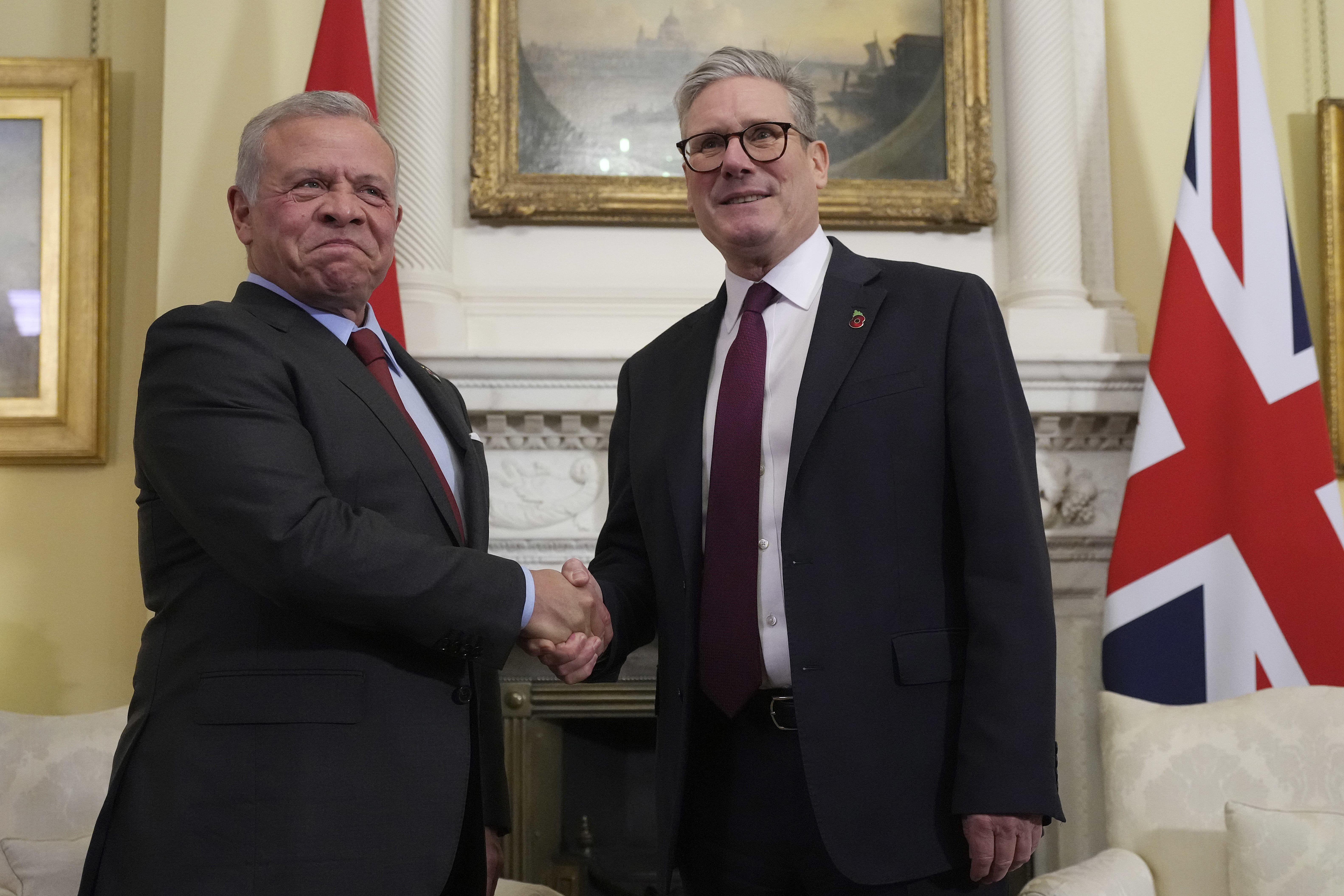Starmer meets with King of Jordan at Downing Street
They agreed on the need to support a political solution to ‘end the bloodshed’ in Lebanon.

Your support helps us to tell the story
From reproductive rights to climate change to Big Tech, The Independent is on the ground when the story is developing. Whether it's investigating the financials of Elon Musk's pro-Trump PAC or producing our latest documentary, 'The A Word', which shines a light on the American women fighting for reproductive rights, we know how important it is to parse out the facts from the messaging.
At such a critical moment in US history, we need reporters on the ground. Your donation allows us to keep sending journalists to speak to both sides of the story.
The Independent is trusted by Americans across the entire political spectrum. And unlike many other quality news outlets, we choose not to lock Americans out of our reporting and analysis with paywalls. We believe quality journalism should be available to everyone, paid for by those who can afford it.
Your support makes all the difference.The Prime Minister has welcomed King Abdullah II of Jordan to Downing Street, where the two leaders discussed the Middle East.
The Jordanian king was visiting No 10 for the second time since Sir Keir Starmer was elected in July.
Sir Keir and King Abdullah reflected on the situation in the Middle East in recent days and reiterated the need for ceasefires in Lebanon and Gaza, a Downing Street spokesperson said.
The Prime Minister reiterated the importance of Israel allowing UNRWA, the main provider of aid in Gaza, to continue operating.
Israel passed a law last month to sever ties with the UNRWA agency and prevent it from operating in Israel.
The leaders expressed concern about the situation in the West Bank, including increased settler violence and the expansion of settlements.
They also agreed on the need to support a political solution to “end the bloodshed” in Lebanon.
The Prime Minister updated the king on the UK’s recent delivery of ration packs and battlefield medical kits to Lebanese Armed Forces.
Israeli forces and the Hezbollah militant group have been clashing for more than a year, since Hezbollah started firing rockets across the border with Lebanon.
That was soon after a deadly Hamas-led attack on southern Israel that sparked the ongoing war in Gaza in October last year.
The war on the Lebanese front has substantially escalated since mid-September, with Israel launching a massive aerial bombardment and ground invasion.